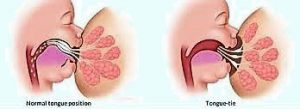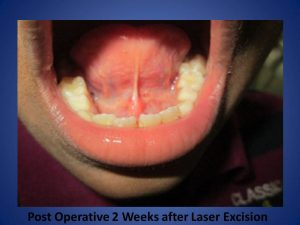Paediatric and Preventive Dentistry
Dr. Sheen Ann John, who is specialized in Paediatric dental care, directs our team in Dental Studio towards catering to providing primary, preventive and comprehensive oral health care for our little ones. Paediatric dentistry focuses on treating a broad range of dental problems faced by infants, children and adolescents, and even those requiring special dental health care needs. Dental Studio and its team makes special efforts towards providing treatment and care to our patients, while at the same time keeping them comfortable through behaviour management techniques. Paediatric dentistry in Dental Studio also strives to educate our child patients and the children’s parents about the importance of preserving oral health in children, and how to take preventive steps in averting the adverse personality and developmental effects that could occur by ignoring children’s oral health care. Thus we endeavour to not just promote the dental health of our child patients, being their dentists, but we also serve to provide educational resources and guides regarding their oral health for the parents of our little masters and little ladies.
Therefore Paediatric dentistry in our clinic is dedicated to the comprehensive oral health of our child patients, right from their infancy and through their teen years, providing comprehensive care for their teeth, gums, and jaw or facial growth throughout their various stages of childhood and adolescence.
Let’s show you how?
Children begin to get their baby teeth within the first 6 months of life (or later in some cases). But as they approach the age of 6 or 7 years, they start to lose their first set of baby teeth or milk teeth, which eventually are replaced by a set of secondary or permanent teeth. However, in the absence of proper dental care that takes care of their teeth right from the time their milk teeth are erupting, to way after they fall out, (or in some cases needing taking out) and their permanent set of teeth coming in place, children can face possible teeth decay leading to premature teeth loss that can cause altered jaw development leading to a lifetime of pain and complications.
Today, early childhood dental decay is an infectious disease which is rated 5 times more common in children than asthma and 7 times more common than hay fever or related allergies. The American Academy of Pediatric Dentistry defined early childhood caries (ECC) as the presence of one or more decayed (non cavitated or cavitated), missing (due to decay), or filled tooth surfaces in any primary tooth in a child up to 71 months of age or younger.
Such dental decay in children can lead to the child having socio-behavioural issues among their peer groups and with others and can afflict even infants and toddlers. The consequences of such decay in children can be immediate effects such as pain and compromised chewing ability and in the long term can lead to crooked alignment of teeth, speech related problems, poor general health in the child and low self-esteem as the child develops and grows.
Overall prevalence of early childhood tooth decay in India is 55.5% to 68%, but the incidence in the children in Trivandrum is as high as 54% (Sobha Kuriakose, Meenu Prasannan et al in 2015) which was found to be notably higher in children with working mothers, though this being the capital city of Kerala and having adequate health care facilities. This alarmingly higher incidence of tooth decay in children is quite higher than in urban Bangalore, which had only 27.5% occurence. (Prashanth Prakash, Priya Subramaniam et al in 2012)

Another problem that affects babies and children is tongue tie. Tongue-tie (ankyloglossia) is an inherent, peculiar condition in which a string of tissue under a baby's tongue (frenulum), which connects the baby’s tongue to the floor of the mouth, is naturally too short. Tongue-tie prevents or restricts the baby’s tongue from moving freely or extending the tip of the tongue out past the lower front teeth. It can cause problems with breastfeeding as the baby would have trouble latching on to the nipple, causing the baby to slip off the breast while feeding, or make clicking noises and/or dribble or bite during feeding. If the baby does not get enough feed this may cause low weight gain, necessitating frequent feeds and can also cause the mother to be sore.

The frenulum being especially tight may cause tongue mobility problems and when the child is nearing the age of speaking (around the age of three), leads to speech problems developing in the toddler, especially the pronunciation of sounds such as “ell”, “arr”, “tee”, “dee”, “en”, tha”, “sha”, and “ze”. When the child tries to extend its tongue outside the mouth or beyond the front teeth, if one could see a V-shaped notch at the tip of the tongue (or heart shaped) or the child finds it impossible to push out the tongue past the upper gums or to touch the roof of the mouth or has difficulty moving the tongue from side to side then the child does have tongue tie.

Tongue tie can lead to other problems related to:-
Appearance – Tongue tie if left untreated, can cause the development of a gap between the bottom (or upper) two front teeth as the child grows.
Poor Self Esteem and Difficulty to blend in peer groups as their friends itself can make fun of them or ridicule their difficulty to pronounce, speak or even their appearance.
The treatment for tongue tie is a simple procedure called a frenectomy. It can be easily and painlessly performed by a Laser. Mostly it is done under topical application of an anaesthetic gel. The gel is usually strawberry or banana flavoured and does not cause any discomfort to the child. As Laser surgery does not cause any much bleeding, it does not require stiches or post-operative pain killers or antibiotics too, it is normally quite comfortable for a child. In western countries it is performed preventively even in new born babies.
